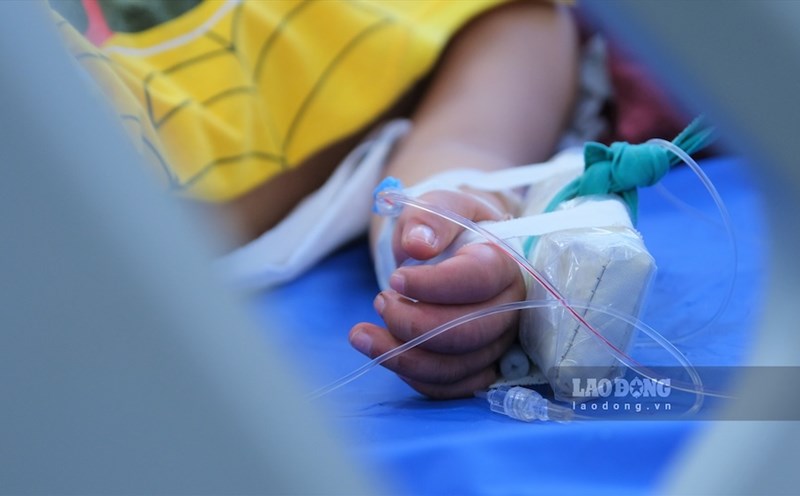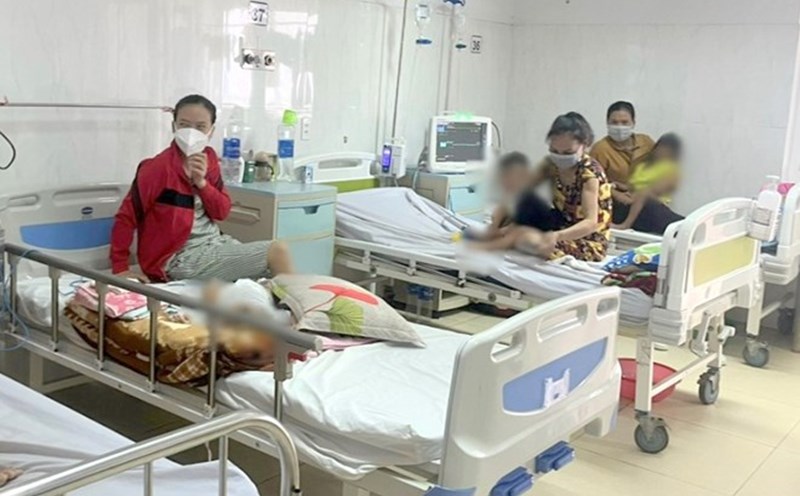Patient Ng.T. K. (23 months old, living in Tay Ninh), was taken to the City Children's Hospital in critical condition after two days of illness. According to the family, the child started with symptoms of fever, vomiting, and pink boils on the palms and feet.
By the second day, the child's condition had clearly deteriorated with continuous seizures. The child was taken to a local hospital and diagnosed with grade 2a TCM, but the condition did not improve despite treatment according to the plan.
When admitted to the City Children's Hospital, K.'s condition was extremely serious: sluggishness, rapid pulse, high blood pressure, and irregular breathing. Doctors immediately diagnosed the child with grade 3 TCM, accompanied by complications of high blood pressure, mild liver enzymes and severe metabolic acidosis. These are warning signs of the risk of respiratory failure, circulatory failure and brain damage, if not intervened promptly, which can lead to death.
Faced with the urgent situation, the medical team quickly came up with an active treatment regimen. In addition, the child's fever was reduced and electrolytes were adjusted, balancing alkaline function to overcome metabolic function.
After 7 days of active and persistent treatment, a miracle came to baby K. The baby's health condition had clear improvements: the fever gradually decreased, the heart rate was stable at 120 - 125 times/minute, and blood pressure was stable. The child is on a ventilator, alert and can interact with people around him.
From the case of K., doctors at the City Children's Hospital once again recommend that parents pay close attention to unusual signs in children to take them to the emergency room in time.
Parents should take their children to the hospital immediately if they have the following symptoms, when they appear with fever, pink water acne on the hands, feet, buttocks, knees and mouth ulcers:
startled, this is a sign of nerve damage, very dangerous. Oving a lot shows the possibility of dehydration or digestive complications.
High fever that is difficult to relieve needs to be closely monitored, do not be subjective. Unusual breathing, rapid breathing, sluggish breathing, chest cavity, irregular breathing.
Swinging of the limbs, wheezing, unsteady sitting: Signs of damage to the central nervous system.
To proactively protect children from hand, foot and mouth disease, parents need to strictly implement preventive measures such as personal hygiene for children, personal hygiene for caregivers. Wash your hands with soap regularly. Regularly wash toys, items, floors, formwork, door handles, and surfaces at risk of exposure to pathogens.
isolate children from the disease for 7-10 days from the date of the disease. Avoid letting children go to school or go to crowded places to prevent spread. Do not break the child's blisters to avoid spreading the virus.









